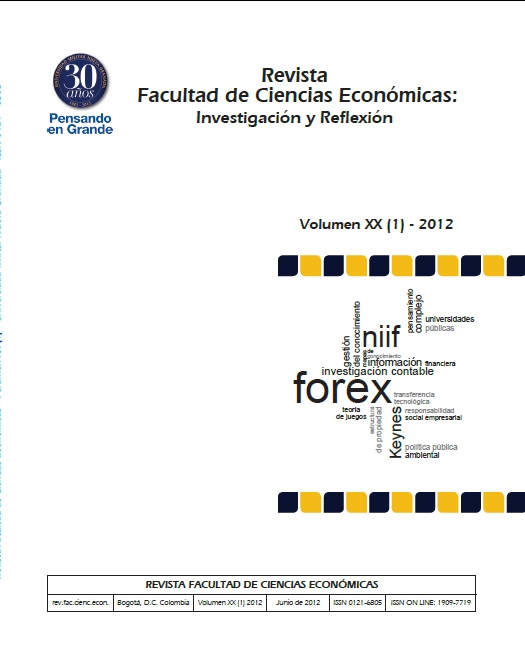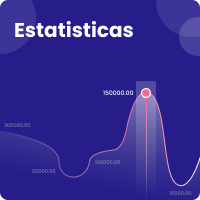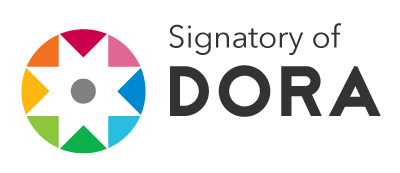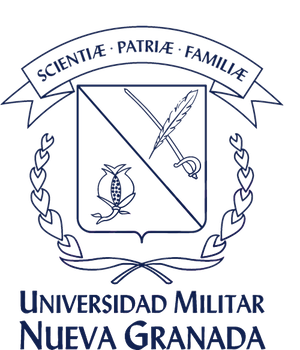O potencial dos estudos retóricos na pesquisa contábil
Resumo
O presente escrito procura mostrar o papel que teve e a potencialidade que podem ter os estudos sociais da ciência na pesquisa contábil internacional e nacional. O texto parte da percepção da contabilidade como prática social construtora de realidades e ao mesmo tempo legitimadora de ordens sociais particulares. Enfatiza-se de maneira especial o papel dos estudos retóricos e da natureza retórica da contabilidade. Vê-se à retórica como todos aqueles dispositivos discursivos que são utilizados por um emissor (individual ou coletivo) dentro de expressões textuais, orais ou pictóricas através das quais se procura persuadir a um público. A partir disto os relatórios contábeis (internos, externos, entre outros) são vistos como instrumentos retóricos pelos quais as organizações procuram persuadir a diversos 'usuários' e ao mesmo tempo construir sua legitimidade. O potencial da pesquisa retórica em contabilidade é amplo e tal amplitude é demonstrada no texto.Downloads
Referências
Aho, J. A. (1985) Rhetoric and the Invention of Double Entry Bookkeeping. En: Rhetorica: A Journal of the History of Rhetoric, 3, 21-43.
Alvarez, H. (2007) Contabilidad, Valoración y Distribución de la Riqueza: Una Visión Crítica. En: Lúmina, 172-204.
Amernic, J. H. (1997) Two Readings and an Epilogue: A Commentary on the Voice of Seduction in Mynatt et. al. Critical Perspectives on Accounting, 8, 693-716.
Amernic, J. H. & Craig, R. J. (2000a) Accountability and Rhetoric During a Crisis: Walt Disney's 1940 Letter to Stockholders. En: Accounting Historians Journal, 27, 49-86.
Amernic, J. H. & Craig, R. J. (2000b) The Rhetoric of Teaching Financial Accounting on the Corporate Web: A Critical Review of Content and Metaphor in IBM's Internet Webpage Guide to Undestanding Financials. Critical Perspectives on Accounting, 11, 259-287.
Araujo, J. A. (2007) Los recursos: objeto de estudio de la Contabilidad. Contaduría, Universidad de Antioquia, 177-186.
Arévalo, N. E. & Quinche, F. L. (2008) Importancia del Estudio de Caso en Contabilidad. In Centro Colombiano de Investigación Contable C-CINCO (Ed.), VII Simposio Nacional de Investigación Contable y Docencia (p 29-40)
Ariza, E. D. (1996) Una Aproximación a la Naturaleza de la Contabilidad. En: Lúmina, 4-16.
Ashmore, M., Myers, G., & Potter, J. (1994) Seven Days in the Library: Discourse, Rhetoric, Reflexivity. In S.Jasanoff, G. Markle, J. Petersen, & T Pinch (Eds.), Handbook of Science, Technology and Society (p 321-342) London: Sage.
Bavaria, S. A. (2008) Informe a la Asamblea General Ordinaria, Segundo Semestre de 2008.
Bazerman, C. (1988) Shaping Written Knowlegde. The Genre and Activity of the Experimental Article in Science. Madison: The University of Wisconsin Press.
Bazerman, C., Little, J., Bettel, L., Chavkin, T, Fouquette, D., & Garufls, J. (2005) Reference Guide to Writing Across the Curriculum. Indiana: Parlor Press.
Belkaoui, A. (1985) Accounting Theory. San Diego: Harcourt Brace Jovanovich.
Bijker, W. (1994) The Social Construction of Flourescent Light, or How an Artifact was Invented in its Diffusion Stage. In Shaping Technology/Building Society (p 75-104) London: MIT Press.
Bijker, W. (1997) La Construcción Social de la Baquelita: Hacia una Teoría de la Innovación. In M.González, J. López, & J. Luján (Eds.), Ciencia, Tecnología y Sociedad. Lecturas Seleccionadas (p 103-130) Barcelona: Ariel.
Bloor, D. (1998) Conocimiento e Imaginario Social. Barcelona: Gedisa.
Bourguignon, A. (2005) Management Accounting and Value Creation: The Profit and Loss Reification. En: Critical Perspectives on Accounting, 16, 353-389.
Briers, M. & Chua, W. F. (2001) The Role of Actor-Networks and Boundary Objects in Management Accounting Change: A Field Study of an Implementation of Activity-Based Costing. En: Accounting, Organizations and Society, 26, 237-269.
Callon, M. (1980) Struggles and Negotiations to Define What is Problematic and What is not. The Socio-logic of Translation. In K.Knorr-Cetina (Ed.), The Social Process of Scientific Investigation (p 197-219) London: D. Reidel Publishing Company.
Callon, M. (1986) Some Elements of a Sociology of Translation: Domestication of the Scallops and the Fishermen of St. Brieuc Bay. In J.Law (Ed.), Power, Action and Belief. A New Sociology of Knowledge? (p 196-233) London: Routledge.
Callon, M. (1989) Society in the Making: the Study of Technology as a Tool for Sociological Analysis. In W. Bijker, T. Hughes, & T. Pinch (Eds.), The Social Construction of Technological Systems (p 83-105) London: MIT Press.
Cañibano, L. (1988) Contabilidad: Análisis Contable de la Realidad Económica. Madrid: Editorial Piramide.
Cañibano, L. (1996) Los Programas de Investigación en Contabilidad. Contaduría, Universidad de Antioquia, 13-61.
Carruthers, B. G. & Espeland, W. N. (1991) Accounting for Rationality: Double-Entry Bookkeeping and the Rhetoric of Economic Rationality. En: The American Journal of Sociology, 97, 31-69.
Chalmers, A. (1999) ¿Qué es esa Cosa Llamada Ciencia? Madrid: Siglo XXI Editores.
Christensen, M. (2004) Accounting by Words not Numbers: The Handmaiden of Power in the Academy. En: Critical Perspectives on Accounting, 15, 485-512.
Chua, W. F. (1986) Radical Developments in Accounting Thought. En: The Accounting Review, 61, 601-632.
Chua, W. F. & Preston, A. (1994) Worrying about Accounting Health Care. En: Accounting, Auditing and Accountability Journal, 7.
Clower, R. (1988) The Ideas of Economists. In A.Klamer, D. Mc-Closkey, & R. Solow (Eds.), The Consequences of Economic Rhetoric ( Cambridge: Cambridge University Press.
Collins, H. (1997) Un Programa Empírico del Relativismo en Sociología del Conocimiento. In M.González, J. López, & J. Luján (Eds.), Ciencia, Tecnología y Sociedad. Lecturas Seleccionadas (p 49-70) Barcelona: Ariel.
Courtis, J. K. (2004) Colour as Visual Rhetoric in Financial Reporting. En: Accounting Forum, 28, 265-281.
Crowther, D., Carter, C., & Cooper, S. (2006) The Poetics of Corporate Reporting: Evidence from the UK Water Industry. En: Critical Perspectives on Accounting, 17, 175-201.
Dechow, N. & Mouritsen, J. (2005) Enterprise Resource Planning Systems, Management Control and the Quest for Integration. En: Accounting, Organizations and Society, 30, 691-733.
García, C. L. (2001) Elementos para una Teoría General de la Contabilidad. Buenos Aires: La Ley.
García, M. (1998) Últimas Tendencias de la Metodología de la Contabilidad. En: Lúmina, 5-9.
Gilbert, G. N. & Mulkay, M. (1994) El Discurso de los Científicos como Tema. In J.M.Iranzo, R. Blanco, T. González, C. Torres, & A. Cotillo (Eds.), Sociología de la Ciencia y la Tecnología (p 205-220) Madrid: CSIC.
Gill, A. & Whedbee, K. (2000) Retórica. In T.van Dijk (Ed.), El Discurso como Estructura y Proceso. Estudios del Discurso: Introducción Multidisciplinaria (p 233-270) Barcelona: Gedisa.
Giraldo, G. (2008) Repercusiones de la Teoría Crítica en la Investigación Contable. In VII Simposio Nacional de Investigación Contable y Docencia (p 77-94)
Gómez, M. (2004) Breve Introducción al Estado del Arte de la Orientación Crítica en la Disciplina Contable. Contaduría, Universidad de Antioquia, 113-132.
Gross, A. (2006) Starring the Text: The Place of Rhetoric in Science Studies. Illinois: Southern Illinois University Press.
Hooper, K. & Pratt, M. (1995) Discourse and Rhetoric. The Case of the New Zealand Native Land Company. En: Accounting, Auditing and Accountability Journal, 8, 10-37.
Hopper, T. & Powell, A. (1985) Making Sense of Research into the Organizational and Social Aspects of Management Accounting: A Review of Its Underlying Assumptions. En: Journal of Management Studies, 429-465.
Hopwood, A. & Miller, PI (1994) Accounting as Social and Institutional Practice. Cambridge: Cambridge University Press.
Hoskin, K. & Macve, R. (1994) Writing, Examining, Disciplining: The Genesis of Accounting's Modern Power. In A.Hopwood & Miller (Eds.), Accounting as Social and Institutional Practice ( Cambridge: Cambridge University Press.
Jupe, R. E. (2000) Self-Referential Lobbyng of the Accounting Standards Board: The Case of Financial Reporting Standard No. 1. En: Critical Perspectives on Accounting, 11, 337-359.
Justesen, L. & Mouritsen, J. (2009) The Triple Visual: Translations Between Photographs, 3-D Visualizations and Calculations. En: Accounting, Auditing and Accountability Journal, 22, 973-990.
Klamer, A. & McCloskey, D. (1992) Accounting as the Master Metaphor of Economics. En: The European Accounting Review, 1, 145-160.
Knorr-Cetina, K. (1994) Los Estudios Etnográficos del Trabajo Científico: Hacia una Interpretación Constructivista de la Ciencia. In J.M.Iranzo, R. Blanco, T. González, C. Torres, & A. Cotillo (Eds.), Sociología de la Ciencia y la Tecnología (p 187-204) Madrid: CSIC.
Knorr-Cetina, K. (2005) La Fabricación del Conocimiento. Un Ensayo sobre el Carácter Constructivista y Contextual de la Ciencia. Buenos Aires: Universidad Nacional de Quilmes Editorial.
Kuhn, T. (2007) La Estructura de las Revoluciones Científicas. México: Fondo de Cultura Económica.
Lakatos, I. (1987) La Historia de la Ciencia y sus Reconstrucciones Racionales. Madrid: Tecnos.
Lakatos, I. (1989) La Metodología de los Programas de Investigación. Madrid: Alianza.
Lakoff, G. & Johnson, M. (1986) Metáforas de la vida cotidiana. Madrid: Cátedra.
Lara, J. A. (1991) Teoría contable y estructuras paradigmáticas. Contaduría, Universidad de Antioquia, 231-250.
Larrinaga, C. (1999) Perspectivas Alternativas de Investigación en Contabilidad: Una Revisión. Revista de Contabilidad, 2, 103-131.
Latour, B. (1991) Technology is Society Made Durable. In J.Law (Ed.), A Sociology of Monsters: Essays on Power, Technology and Domination (p 103-131) London: Routledge.
Latour, B. (1992) Ciencia en Acción. Cómo Seguir a los Científicos e Ingenieros. Barcelona: Editorial Labor.
Latour, B. (1994) Where are the Missing Masses? The Sociology of a Few Mundane Artifacts. In W. Bijker & J. Law (Eds.), Shaping Technology/Building Society ( London: MIT Press.
Latour, B. (2001) La Esperanza de Pandora. Ensayos sobre la Realidad de los Estudios de la Ciencia. Barcelona: Gedisa.
Latour, B. (2008) Reensamblar lo Social. Una Introduccion a la Teoría del Actor-Red. Buenos Aires: Manantial.
Latour, B. & Woolgar, S. (1995) La Vida en el Laboratorio. La Construcción de los Hechos Científicos. Madrid: Alianza.
Law, J. (1986) On the Methods of Long-Distance Control: Vessels, Navigation and the Portugesse Route to India. In J.Law (Ed.), Power, Action and Belief. A New Sociology of Knowledge? (p 196-233) London: Routledge.
Law, J. & Akrich, M. (1994) On Costumers and Costs: A Story from Public Sector Science. In M.Power (Ed.), Accounting and Science. Natural Inquiry and Commercial Reason (p 120-150) London: Cambridge University Press.
Law, J. & Callon, M. (1994) The Life and Death of an Aircraft: A Network Analysis of Technical Change. In W. Bijker & J. Law (Eds.), Shaping Technology/Building Society (p 21-52) London: MIT Press.
Lemos de la Cruz, J. E. (2006) Filosofía de la ciencia y contabilidad: relación necesaria. Contaduría, Universidad de Antioquia, 57-70.
Lowe, A. (2000) The Construction of a Network at Health Waikato: The 'Towards Clinical Budgeting' Project. En: Accounting, Auditing and Accountability Journal, 13, 84-114.
Lowe, A. (2001a) Accounting Information Systems as Knowledge-Objetcs: Some Effects of Objectualization. En: Management Accounting Research, 12, 75-100.
Lowe, A. (2001b) After ANT - An Ilustrative Discussion of the Implications for Qualitative Accounting Case Research. En: Accounting, Auditing and Accountability Journal, 14, 327-351.
Lowe, A. (2004a) Methodology Choices and the Construction of Facts: Some Implications from Sociology of Scientific Knowledge. En: Critical Perspectives on Accounting, 15, 207-231.
Lowe, A. (2004b) Post-social Relations: Toward a Performative View of Accounting Knowledge. En: Accounting, Auditing and Accountability Journal, 17, 604-628.
Lowe, A. & Koh, B. (2007) Inscribing the Organization: Representations in Dispute between Accounting and Production. En: Critical Perspectives on Accounting, 18, 952-974.
Lynch, M. (1990) The Externalized Retina: Selection and Methematization in the Visual Documentation of Objects in the Life Sciences. In M.Lynch & S. Woolgar (Eds.), Representation in Scientific Practice (p 153-186) Cambridge: MIT Press.
Lynch, M., Livingstone, E., & Garfinkel, H. (1994) El Orden Temporal en el Trabajo de Laboratorio. In J.M.Iranzo, R. Blanco, T. González, C. Torres, & A. Cotillo (Eds.), Sociología de la Ciencia y la Tecnología (p 163-186) Madrid: CSIC.
Machado, M. A. (1994) Un nuevo concepto de contabilidad para el avance científico. Contaduría, Universidad de Antioquia, 113-125.
Machado, M. A. (1999) El complejo objeto de estudio de la contabilidad: por la vía constructiva. Contaduría, Universidad de Antioquia, 17-45.
Mardones, J. M. (2001) Filosofía de las Ciencias Humanas y Sociales. Barcelona: Anthropos.
Martínez, G. L. (2006) Los Paradigmas Contables: La Borrosa Impronta de una Interpretación Epistemológica. Contaduría, Universidad de Antioquia, 117-154.
Mattessich, R. (1995) Critique of Accounting. Examination of the Foundations and Normative Structure of an Applied Discipline. Wesport: Quorum Books.
Mattessich, R. (2002) Contabilidad y Métodos Analíticos. Medición y Proyección del Ingreso y la Riqueza en la Microeconomía y en la Macroeconomía. Buenos Aires: La Ley.
McCloskey, D. (1983) The Rhetoric of Economics. En: Journal of Economic Literature, XXI, 481-517.
McCloskey, D. (1990) La Retórica de la Economía. Madrid: Alianza.
McCloskey, D. (1993) Si Eres tan Listo. La Narrativa de los Expertos en Economía. Madrid: Alianza.
McCloskey, D. (1994) How to Do a Rhetorical Analysis, and Why. In R.Backhouse (Ed.), Economic Methodology (p 319-342) London: Routledge.
McGoun, E. G., Bettner, M. S., & Coyne, M. (2007) Pedagogic Metaphors and the Nature of Accounting Signification. En: Critical Perspectives on Accounting, 18, 213-230.
Mellemvik, F. (1997) Accounting, the Hidden Collage? Accounting in the Dialogues Between a City and its Financial Institutions. En: Scandinavian Journal of Management, 13, 191-207.
Merton, R. (1977) La Sociología de la Ciencia: Investigaciones Teóricas y Empíricas. Madrid: Alianza.
Miller, & O'leary, T (1987) Accounting and the Construction of Governable Person. Accounting, Organizations and Society, 12, 235-265.
Miller, & O'leary, T (1994) The Factory as Laboratory. In M.Power (Ed.), Accounting and Science. Natural Inquiry and Commercial Reason ( London: Cambridge University Press.
Miller, & Rose, N. (2008) Governing the Present. Administerin Economic, Social and Personal Life. Cambridge: Polity Press.
Moerman, L. & van der Laan, S. (2007) Pursuing Shareholder Value: The Rhetoric of James Hardie. En: Accounting Forum, 31, 354-369.
Montesinos, V. (1999) Formación y contrastación de las teorías científicas en contabilidad. En: Lúmina, 7-14.
Mouck, T. (1992) The Rhetoric of Science and the Rhetoric of Revolt in the 'Story' of Positive Accounting Theory. En: Accounting, Auditing and Accountability Journal, 5, 35-56.
Mouritsen, J., Hansen, A., & Hansen, C. 0. (2009) Short and Long Translations: Management Accounting Calculations and Innovation Management. En: Accounting, Organizations and Society, 34, 738-754.
Mouritsen, J. & Larsen, H. T. (2005) The 2nd Wave of Knowledge Management: The Management Control of Knowledge Resources through Intellectual Capital Information. En: Management Accounting Research, 16, 371-394.
Mouritsen, J., Larsen, H. T., & Bukh, N. (2001b) Valuing the Future: Intellectual Capital Suplements at Skandia. En: Accounting, Auditing and Accountability Journal, 14.
Mouritsen, J., Larsen, H. T, & Hansen, A. (2002) 'Be Critical!' Critique and Naivete - Californian and French Connections in Critical Scandinavian Accounting Research. En: Critical Perspectives on Accounting, 13, 497-513.
Mouritsen, J. & Thrane, S. (2006) Accounting, Network Complementarities and the Development of Inter-Organisational Relations. En: Accounting, Organizations and Society, 31, 241-275.
Nelson, J. S., Megill, A., & McCloskey, D. (1987a) Rhetoric of Inquiry. In J.S.Nelson, A. Megill, & D. McCloskey (Eds.), The Rhetoric of the Human Sciences. Language and Argument in Scholarship and Public Affairs (p 3-18) Madison: The University or Wisconsin Press.
Nelson, J. S., Megill, A., & McCloskey, D. (1987b) The Rhetoric of the Human Sciences. Language and Argument in Scholarship and Public Affairs. Madison: The University of Wisconsin Press.
Norreklit, H. (2003) The Balanced Scorecard: What is the Score? A Rhetorical Analysis of the Balanced Scorecard. En: Accounting, Organizations and Society, 28, 591-619.
Pinch, T. & Bijker, W. (1989) The Social Construction of Facts and Artifacts or How the Sociology of Science and the Sociology of Technology Might Benefit Each Other. In W. Bijker, T Hughes, & T Pinch (Eds.), The Social Construction of Technological Systems (p 17-50) London: MIT Press.
Porter, T (1992) Quantification and the Accounting Ideal of Science. Social Studies of Science, 22, 633-651.
Potter, J. (1998) La Representación de la Realidad. Discurso, Retórica y Construcción Social. Barcelona: Paidós.
Power, M. (1994a) Accounting and Science. Natural Inquiry and Commercial Reason. Cambridge: Cambridge University Press.
Power, M. (1994b) The Audit Society. In A.Hopwood & Miller (Eds.), Accounting as Social and Institutional Practice (p 299-316) Cambridge: Cambridge University Press.
Power, M. (1995) Auditing, Expertise and the Sociology of Technique. En: Critical Perspectives on Accounting, 6, 317-339.
Quinche, F L. (2006) Historia de la Contabilidad: Una Revisión de las Perspectivas Tradicionalles y Críticas de Historiografía Contable. En: Revista Facultad de Ciencias Económicas: Investigación y Reflexión, XIV 187-202.
Quinche, F L. (2008) Una Evaluación Crítica de la Contabilidad Ambiental Empresarial. Revista Facultad de Ciencias Económicas: Investigación y Reflexión, XVI, 197-216.
Reiter, S. A. & Williams, F. (1997) Scientific Conversation in Financial Economics. In V Interdisciplinary Perspectives on Accounting Conference.
Requena, J. M. (1977) La Homogenización de las Magnitudes en la Ciencia de la Contabilidad. Madrid: Ediciones ICE.
Restrepo, O. (2004) Retórica de la ciencia sin 'retórica'. Sobre autores, comunidades y contextos. En: Revista Colombiana de Sociología, 251-268.
Rueda, G. (2007) La Investigación Contable: Vínculos Ontológicos y las Posibilidades de la Investigación Interpretativa. Contaduría, Universidad de Antioquia, 119-132.
Ryan, B., Scapens, R., & Theobald, M. (2004) Metodología de la Investigación en Contabilidad y Finanzas. Barcelona: Deusto.
Solli, R. & Jònsson, S. (1997) Housekeeping? Yes, But Which House? Meaning and Accounting Context - A Case Study. En: Scandinavian Journal of Management, 13, 19-38.
Tascón, M. T (1995) La contabilidad como disciplina científica. Contaduría, Universidad de Antioquia, 65-111.
Thompson, G. (1994) Early Double-Entry Bookkeeping and the Rhetoric of Accounting Calculation. In A.Hopwood & Miller (Eds.), Accounting as Social and Institutional Practice (p 40-66) Cambridge: Cambridge University Press.
Tua, J. (1990) Algunas implicaciones del paradigma de utilidad en la disciplina contable. Contaduría, Universidad de Antioquia, 17-48.
Tua, J. (1995) Lecturas en Teoría e Investigación Contable. Medellín: CIJUF.
Woolgar, S. (1991) Ciencia: Abriendo la Caja Negra. (1 ed.) Barcelona: Anthropos.
Woolgar, S. (1994) Los estudios de laboratorio: un comentario sobre el estado de la cuestión. In J.M.Iranzo, R. Blanco, T González, C. Torres, & A. Cotillo (Eds.), Sociología de la Ciencia y la Tecnología (p 221-233) Madrid: CSIC.
Young, J. J. (2003) Constructing, Persuading and Silencing: The Rhetoric of Accounting Standards. En: Accounting, Organizations and Society, 28, 621-638.











